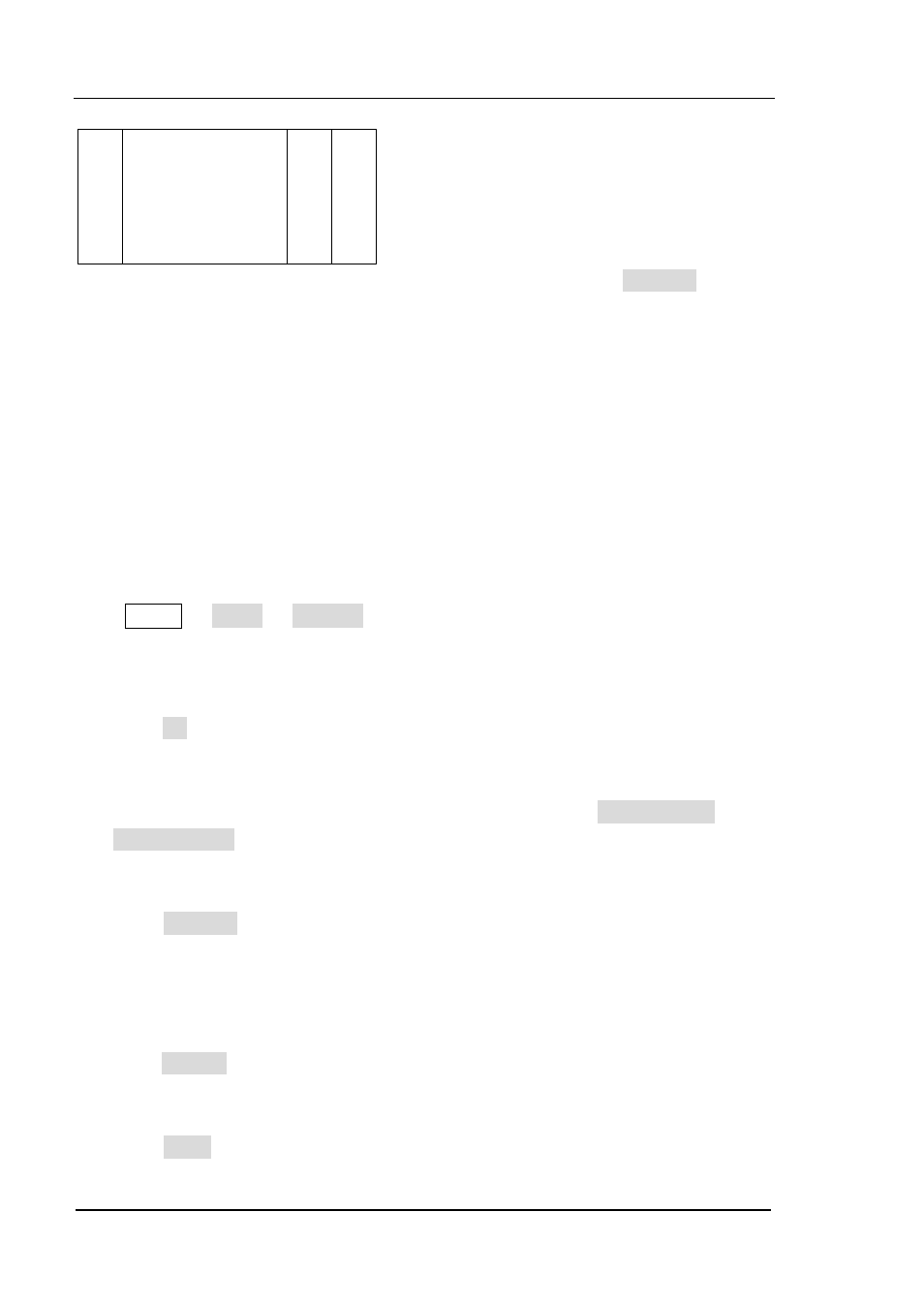RIGOL DS6000 Series User Manual
Page 164

RIGOL
DS6000 User’s Guide
7-6
Start Bit
Data Bit
Check Bit
Stop Bit
Start Bit: represent when the data starts outputting. Setting the Polarity is
equivalent to specifying the “Start Bit”.
Data Bits: represent the number of data bits actually contained in each frame of
data.
Even-OddCheck: be used to check the correctness of the data transmission.
Odd Checkout: the sum of the number of “1” in the data bit and check bit is an
odd. For example, when 0x55 (01010101) is sent, a 1 needs to be filled in the
check bit to make the number of 1 to be an odd.
Even Checkout: the sum of the number of “1” in data bit and check bit is an even.
For example, when 0x55 (01010101), a 0 should be filled in the check bit.
None: if it is not set, there would not be check bit during the transmission.
Press MATH BUS1 Decode to select “RS232” to turn the RS232 decoding
function menu on.
1. TX and RX Channel Setting
Press TX to select any channel (CH1-CH4) as the transmitting channel and when
“OFF” is selected, no transmitting channel is set. Use the same method the set
the RX channel. What’s more, you need to set the thresholds of the input
channels of TX and RX. Switch the menu page and press TXThreshold and
RXThreshold respectively to input the desired threshold values.
2. Polarity Setting
Press Polarity to select “Normal” or “Invert” and the default is invert. The
oscilloscope will sample data on the rising or falling edge of the corresponding
channel according to this setting.
3. Endian Setting
Press Endian to select “LSB” or “MSB” and the default is “LSB”.
4. Baud Rate Setting
Press Baud to select the desired baud rate and the default is 9600 bps.
